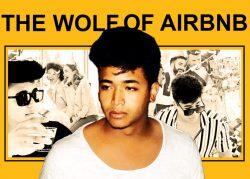There are few things that landlords, tenants and elected officials agree on, but they have unified against a common enemy: illegal rentals.
The city’s Office of Special Enforcement has proposed a series of rules for implementing Local Law 18, a measure that requires hosts using Airbnb and other homesharing sites to register their short-term rentals.
The Real Estate Board of New York has come out in favor of the proposed rules, pointing to cases where landlords were penalized for reporting tenants who were illegally renting out their apartments. The registry of permitted short-term rentals, as well as a list of buildings where such units are forbidden, could help owners avoid liability for tenants’ illegal use of their buildings.
Read more



The local law, enacted in January, aims to track the number of short-term rentals in the city and prevent people from renting out more than one such unit at a time. The rules would establish how hosts apply for registration numbers, as well as a process for creating the list of buildings where short-term rentals are prohibited.
Would-be hosts have to certify that their unit is not in a building where the owner bars such rentals. Rent-regulated units are never permitted to apply for short-term rental registration numbers.
“Establishing a prohibited buildings list will ensure owners and tenants do not have to struggle against visitors who, in some instances, have negatively impacted the quality of life in buildings due to unwanted traffic, noise, and security concerns,” Ryan Monell, REBNY’s vice president of government affairs, said in remarks prepared for a Monday hearing.
Landlord attorney Sherwin Belkin agreed that the rules could help bring short-term rentals “out of the shadows” and give owners more control over their buildings — and any potential liabilities that may arise from those who inhabit them.
Several state officials and Tenant PAC’s Michael McKee, a longtime nemesis of landlords, also testified Monday in favor of the rules, noting that illegal short-term rentals remove much-needed housing units from the market.
State law forbids renting out a residential unit for fewer than 30 days unless the full-time resident is present. The registry stems from the law being difficult to enforce, although the city has rooted out some serial offenders. Starting next month, hosts will not be able to use short-term rental platforms without a registration number from the city, which will verify their homes’ legality for renting.
Other cities have enacted similar restrictions. When Boston passed registration rules for short-term rentals in 2019, Airbnb was reportedly forced to remove thousands of listings.
During a virtual press conference ahead of Monday’s hearing, Airbnb’s Nathan Rotman called the rules “complicated and over-restrictive,” and said they “will severely limit hosting and tourism” and “hurt regular New Yorkers who rely on home sharing to make ends meet.”
A number of Airbnb hosts spoke out against the proposals, arguing that homeowners should be treated differently from hosts in multifamily buildings. Aimee Thrasher, a retired nurse, said she would not be able to afford her mortgage without income from Airbnb.
“These laws will not hurt Airbnb,” she said. “They will hurt me and others like me.”
